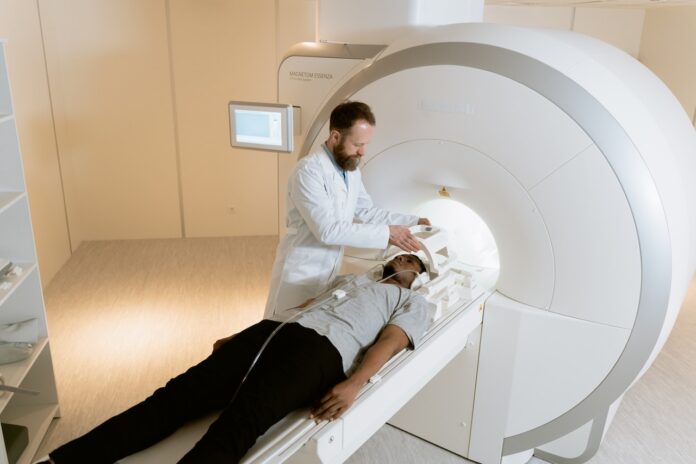In a groundbreaking development, brain-reading devices equipped with artificial intelligence (AI) are revolutionizing communication for individuals living with facial paralysis. Two separate studies, both published in the renowned journal Nature, have unveiled remarkable advancements in Brain-Computer Interfaces (BCIs) that translate neural signals into spoken words or text with unprecedented speed and accuracy.
Reading brain activity
These remarkable BCIs, capable of decoding speech at rates of 62 and 78 words per minute, are poised to transform the lives of people with paralysis, offering newfound hope for fluid and reliable communication.
Francis Willett, a neuroscientist at Stanford University in California and co-author of one of the studies, expressed his optimism during a press conference.
“It is now possible to imagine a future where we can restore fluid conversation to someone with paralysis, enabling them to freely say whatever they want with an accuracy high enough to be understood reliably,” he declared.
The potential for these devices to become accessible to the public is drawing near, according to Christian Herff, a computational neuroscientist at Maastricht University in the Netherlands. Herff believes that these devices “could be products in the very near future.” Both studies employed a combination of electrodes and advanced algorithms to achieve their remarkable results.
Willett’s team worked with a 67-year-old woman, Pat Bennett, who suffers from motor neuron disease, also known as amyotrophic lateral sclerosis. Small silicon electrodes were carefully implanted in areas of Bennett’s brain associated with speech, followed by training deep-learning algorithms to recognize the distinct neural signals she produced while attempting to speak various phrases.
The AI decoded words from phonemes, the smallest units of speech, achieving a remarkable 2.7 times faster performance than previous BCIs for a 50-word vocabulary set, with a word-error rate of 9.1%. Although the error rate increased to 23.8% for a vocabulary set of 125,000 words, Willett’s team considers this a significant breakthrough.
Pat Bennett herself expressed the profound impact of this technology, stating, “For those who are nonverbal, this means they can stay connected to the bigger world, perhaps continue to work, maintain friends and family relationships.”
In a separate study led by Edward Chang, a neurosurgeon at the University of California, San Francisco, a 47-year-old woman named Ann, who lost her ability to speak due to a brainstem stroke 18 years ago, underwent a different approach. The researchers placed a paper-thin rectangle with 253 electrodes on the surface of Ann’s brain cortex, using a technique called electrocorticography (ECoG). AI algorithms were then trained to recognize patterns in Ann’s brain activity associated with her attempts to speak 249 sentences from a 1,024-word vocabulary.
This innovative approach resulted in an impressive 78 words per minute, although with a median word-error rate of 25.5%. Notably, Chang‘s team also personalized Ann’s synthetic voice to resemble her pre-injury voice, a touch that profoundly moved Ann. “The simple fact of hearing a voice similar to your own is emotional,” she shared.
Brain-Reading Devices
While the brain-reading devices used by Willett‘s team demonstrated superior performance for larger vocabularies, the success of ECoG in achieving low word-error rates signifies a significant step forward in the field of brain-computer interfaces.
Video credit: Chang Lab
However, before brain-reading devices can be widely used clinically, several improvements are still required. Participants in both studies retained the ability to engage their facial muscles when thinking about speaking, and their speech-related brain regions were intact, highlighting that this technology may not be suitable for all patients.
Nonetheless, the researchers view these studies as proof of concept, offering motivation for further development and refinement of BCIs that can be practically utilized. They emphasize the need for additional testing on a broader spectrum of individuals to assess the reliability and applicability of these devices.
Judy Illes, a neuroethics researcher at the University of British Columbia in Vancouver, Canada, cautioned against overestimating the generalizability of these findings to larger populations. She noted that while these advancements are impressive, a measured and contextual understanding of their impact is necessary.
These groundbreaking studies about brain-reading devices bring us closer to a future where those with paralysis can regain the ability to communicate effectively. While challenges remain, the potential to restore the power of speech to those who have lost it is an achievement that holds great promise for the future.
doi: https://0b11q8gow-y-https-doi-org.z.e-nformation.ro/10.1038/d41586-023-02682-7

